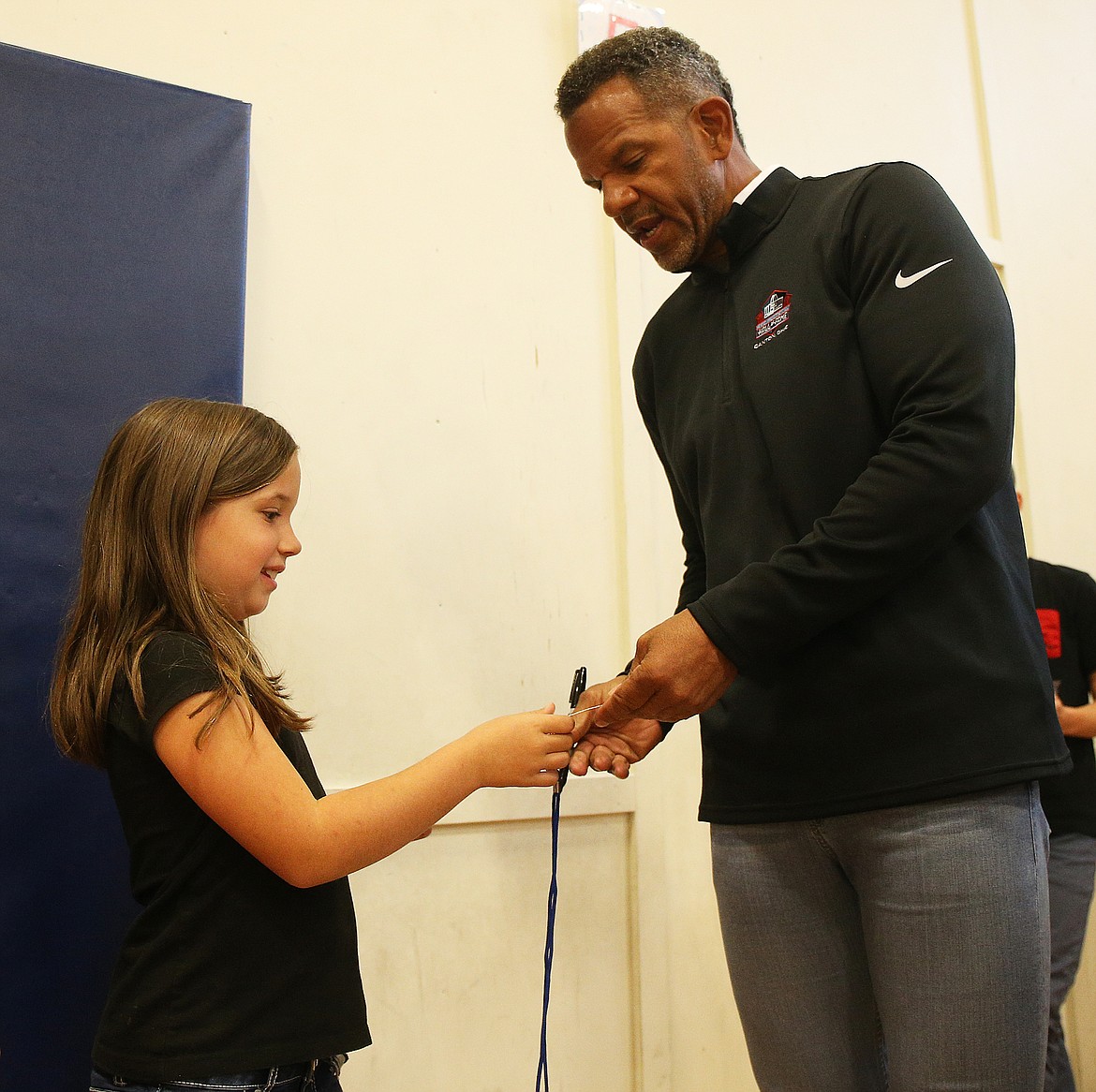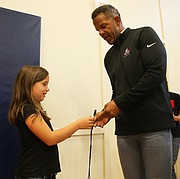NFL great visits Cd'A youth club
By BRIAN WALKER
Staff Writer
COEUR d'ALENE — If you ask Andre Reed what earned him a spot in the Pro Football Hall of Fame, speed and great hands aren't at the top of the list.
In his acceptance speech during his induction to the Hall of Fame, the former Buffalo Bills and Washington Redskins receiver said being a "club kid" at the Boys and Girls Club in Allentown, Pa., helped his route in life.
"As soon as I walked through those blue doors (of the nonprofit) I respected people," he said on Friday during a stop at the Lola and Duane Hagadone Boys and Girls Club in Coeur d'Alene — in his first trip to Idaho. "The Boys and Girls Club gave me safety, stability, encouragement and confidence — everything I needed outside the house. It opened me up."
Growing up in a home with "tough love," Reed was at the club nearly every day after school from ages 6 to 17.
"My foundation started with the Boys and Girls Club," said Reed, also a member of the organization’s Hall of Fame.
These days, Reed is going deep for Boys and Girls Club youth, making guest appearances and lending support through his reading program called Read with Reed 83.
"If you can't read, you may not be going through those blue doors but going through one with bars instead," he said.
Freshman Bennett Ford was all smiles waiting for Reed's autograph.
"Having a Hall of Famer here is super cool," he said.
Reed retired before eighth-grader Zak Schawver was born, but the youth still knows all about Reed through the Madden video game. Zak brought several cards for Reed to sign.
"I think it's fantastic to come all the way to Idaho to say hi," Zak said. "He was a great receiver with great hands. I've had him on my (Madden) team as a starting receiver."
Reed, who lives in San Diego, said he was a shy kid who grew up in an interracial family.
"As a 10-year-old in the mid-1970s I was still trying to figure that out when people would talk to me about it," he said.
He remembers that, due to racial tension, his brothers thought it would be safer to send him into bars to get his dad out because his skin was darker than his siblings’. Reed said he was also in foster care for several years.
"It meant so much to me to have the Boys and Girls Club," he told the kids. "I became a Hall of Famer because of the people around me."
Reed played in the NFL for 16 seasons — 15 with the Bills (1985 to 1999) and one with the Redskins (2000). He ranks 17th in NFL history in total career receptions with 951.
"My success was due to the guys around me," he said. "Twelve (Bills quarterback Jim Kelly's number) plus 83 (Reed's) always equals six (points for a touchdown)."
With the Bills, Reed played in four consecutive Super Bowls (1991 to 1994) and was selected to the Pro Bowl in seven consecutive seasons (1988 to 1994). He has the second-most Super Bowl receptions at 27.
Reed was a key in "The Comeback" game in which the Bills overcame a 35-3 third-quarter deficit against the Houston Oilers in a 1993 playoff game. He caught three touchdowns in the second half in what was the largest comeback in NFL history.
When asked what it was like being a part of that amazing turnaround, Reed said, "Next to having my kids, pretty good."
Reed, 54, is proof that dreams can be realized without big-time backgrounds, said Theresa Villano, Reed's girlfriend.
"It doesn't matter how you start. It's how you finish," she said.
He played for little-known Division II Kutztown University in Pennsylvania, where he quickly drew the attention of the NFL for his speed and durability.
"Andre is a perfect example of: Whatever kid comes through the door, you don't know what the future holds," said Ryan Davis, the Boys and Girls Club of Kootenai County executive director. "Can future Hall of Famers come out of this club? Why not?"



